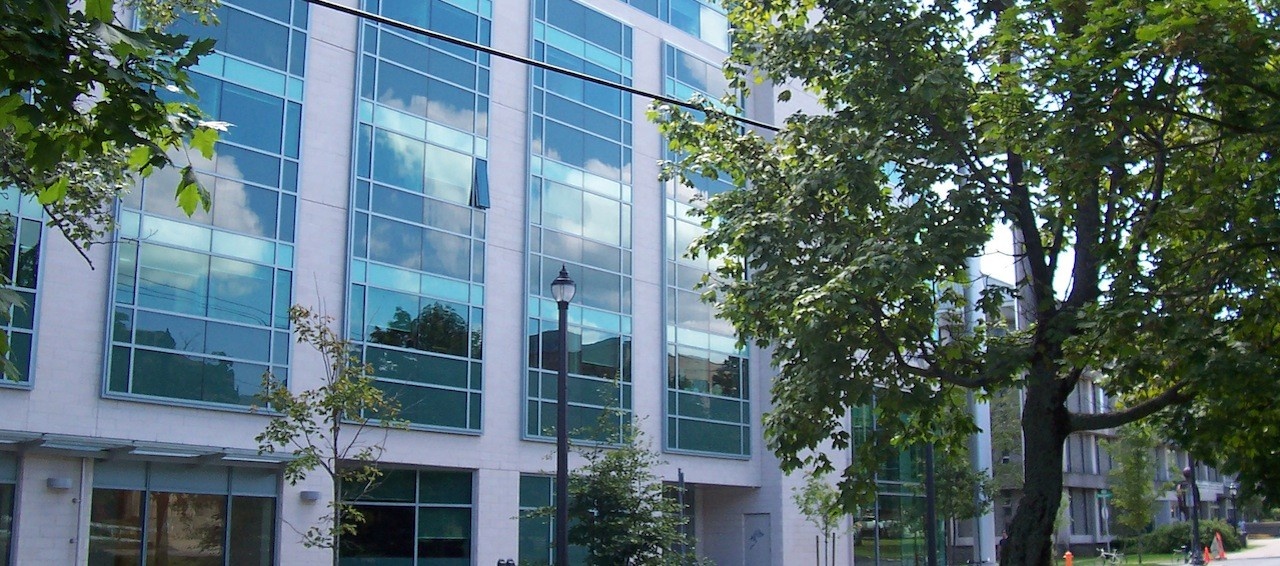Laura Lefebvre
 |
SRES program:MREM Educational background:Bachelor of Science (Honours) in Agricultural and Environmental Sciences from McGill University |
Navigating Environmental Management Laura Lefebvre’s Aquaculture Studies
In the vast expanse of environmental studies, the journey from academia to real-world impact can be both exhilarating and daunting. Laura Lefebvre, a dedicated student enrolled in the Master of Resource and Environmental Management (MREM) program at the esteemed School for Resource and Environmental Studies (SRES), offers a captivating narrative of her transformative journey. From her roots in wildlife biology to her current endeavours in aquaculture research, Laura's story encapsulates the essence of interdisciplinary education and the profound influence of the MREM program at SRES.
Laura's academic journey began with a passion for wildlife biology during her undergraduate years at McGill University. Guided by a deep-seated curiosity about the natural world, she immersed herself in the study of ecosystems and biodiversity. However,Ěý a foray into agriculture and aquaculture expanded her horizons, leading her to explore the intricate dynamics between human activities and environmental sustainability.
Upon graduating from her undergraduate program, Laura found herself at a crossroads, uncertain about her next academic pursuit. After her undergraduate degree experience, she was unsure about pursuing a thesis-based master's after her experience with an honors program. During this pivotal moment, after working for a period of time, she stumbled upon the Master of Resource and Environmental Management program at SRES. Unlike traditional thesis-based programs, the MREM program offered a unique blend of coursework and practical experience, providing students with the tools to address real-world environmental challenges from a multidisciplinary perspective. For Laura, it seemed like a unique opportunity to gain further practical experience in aquaculture and prepare her for a future career.
At the core of the MREM program lies a commitment to holistic environmental management. Through a carefully curated curriculum, students like Laura are equipped with the knowledge and skills to navigate complex environmental issues through lenses of sustainability, social equity, and economic viability. From environmental policy and governance to natural resource economics and ecosystem management, the program offers a comprehensive exploration of the interconnectedness of environmental systems and human societies.
One of the defining features of the MREM program at SRES is its emphasis on interdisciplinary collaboration. Through group projects and collaborative initiatives, students from diverse academic backgrounds come together to tackle complex environmental problems. Laura recalls her experience working on a group project during her first semester, where she collaborated with peers to develop a management plan for a private landowner in Nova Scotia. "Through this project, I got to learn from others who had different perspectives and expertise, which was incredibly enriching," she explains. This collaborative approach not only fosters creativity and innovation but also cultivates a deep appreciation for the interconnectedness of environmental issues.
As part of the MREM program, students are required to complete a minimum 12-week internship placement, providing them with invaluable hands-on experience in their field of interest. For Laura, this summer placement has been a transformative experience as she finds herself immersed in aquaculture research with the Bear River First Nation. Working alongside a community-based team, Laura is involved in data collection to evaluate the feasibility of oyster aquaculture in the Annapolis Basin. Reflecting on her experience, Laura says, “The opportunity to work with Bear River First Nation has been eye-opening. I’ve learned so much about the social and economic significance of aquaculture to Indigenous communities.” This practical experience not only enhances her understanding of aquaculture but also highlights the potential of environmental initiatives to foster economic prosperity within Indigenous communities.
Beyond its academic offerings, SRES boasts a vibrant community of scholars and practitioners dedicated to environmental stewardship. Laura emphasizes the importance of extracurricular activities and student societies in enriching her university experience. Engaging with organizations like the şÚÁĎłÔąĎÍřTheatre Society has not only allowed her to explore diverse interests beyond the classroom but also fostered personal and professional growth in unexpected ways, highlighting the value of practical learning and personal development. “Being involved in different activities helped me develop a well-rounded perspective and provided a break from the rigorous academic schedule,” Laura notes.
As Laura prepares to graduate from the MREM program at SRES, her journey serves as a testament to the transformative power of interdisciplinary education. Armed with a comprehensive understanding of environmental management principles and practical experience in the field, she is poised to make a meaningful impact in the world of environmental conservation. Whether she pursues a career in sustainable food systems or community empowerment, Laura's journey exemplifies the profound influence of the MREM program at SRES in shaping the next generation of environmental leaders.
In conclusion, Laura's journey through the MREM program at SRES embodies the spirit of interdisciplinary collaboration and environmental stewardship. From her beginnings in wildlife biology to her current endeavours in aquaculture research, she has navigated a path of discovery and growth, guided by a passion for environmental sustainability. As she embarks on the next chapter of her journey, Laura remains committed to making a positive difference in the world, inspired by the knowledge and experiences gained through her education at SRES.
For more reading about the Bear River First Nation:Ěý
Ěý
